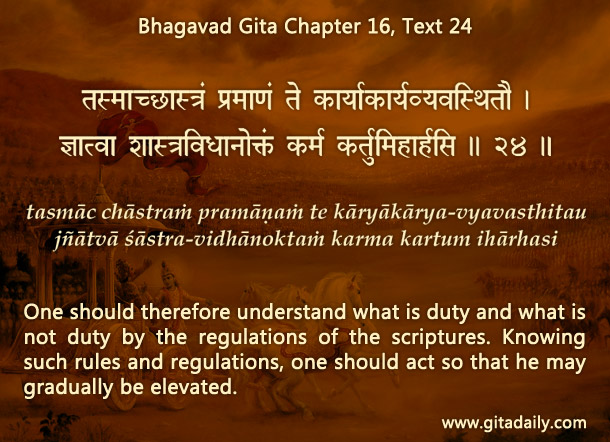Two ways to deter ourselves from wrongdoing – Suppose a child wants to sneak into the kitchen and eat all the cookies there, but doesn’t do so because his mother may discipline him. That deterrent will work only as long as his mother is in a position to chasten him. In contrast, suppose he grows up and understands that when he eats all the cookies, his loved ones can’t have any. If he feels bad about depriving them, then he won’t eat all the cookies, even if offered.
This example illustrates broadly the two things that deter us from wrong actions:
Fear of consequence: The consequence may be imposed by external agents such as parents or law-enforcers — or even nature, as when overeating causes digestive disorders. Fear of consequence is what we frequently need to be deterred from wrong actions. Though essential, this motivation is often not sustainable. Why not? Because it stops working when we start thinking that we have become powerful enough to evade the consequences of our actions.
Power of conscience: Our conscience is the inner voice that makes us feel bad when we do something wrong. The power of conscience works to the extent our consciousness has expanded enough to understand how certain actions are disruptive. At its most evolved level, conscience deters us from all those actions that disconnect us from the Divine. Because conscience doesn’t need any external agent to impose consequence, it is a more sustainable deterrent from wrongdoing.
How can we strengthen these two deterrents within us? By studying scripture regularly (Bhagavad-gita 16.24). Scriptural narratives demonstrate graphically the consequences of our actions. And scriptural directives when applied purge us of the inner impurities that mute our conscience. Thus, this dual connection with scripture empowers us to choose well.
One-sentence summary:
To deter ourselves from wrongdoing, we need the fear of consequence preliminarily and the power of conscience preferably.
Think it over:
- How can the fear of consequence deter us from wrongdoing?
- How can the power of conscience deter us from wrongdoing?
- How can we strengthen these two deterrents within us?
***
16.24: One should therefore understand what is duty and what is not duty by the regulations of the scriptures. Knowing such rules and regulations, one should act so that he may gradually be elevated.
To know more about this verse, please click on the image
Explanation of article:

Podcast:


Leave A Comment